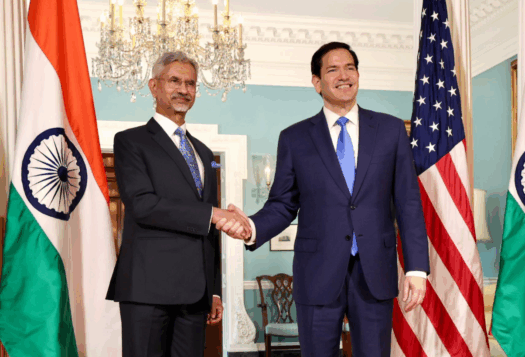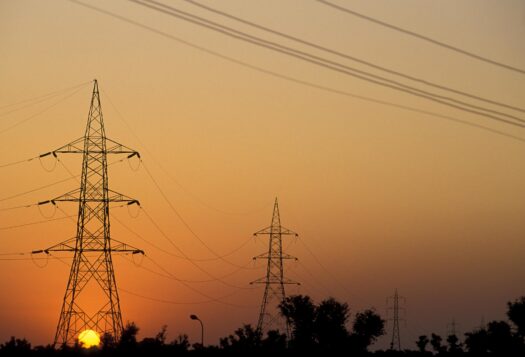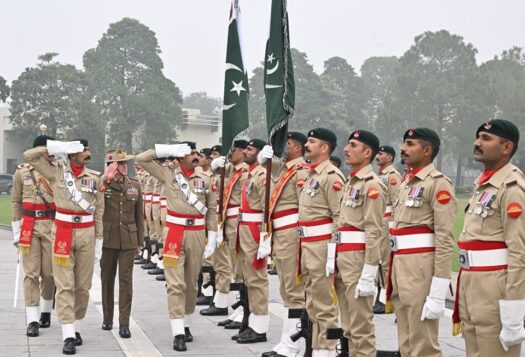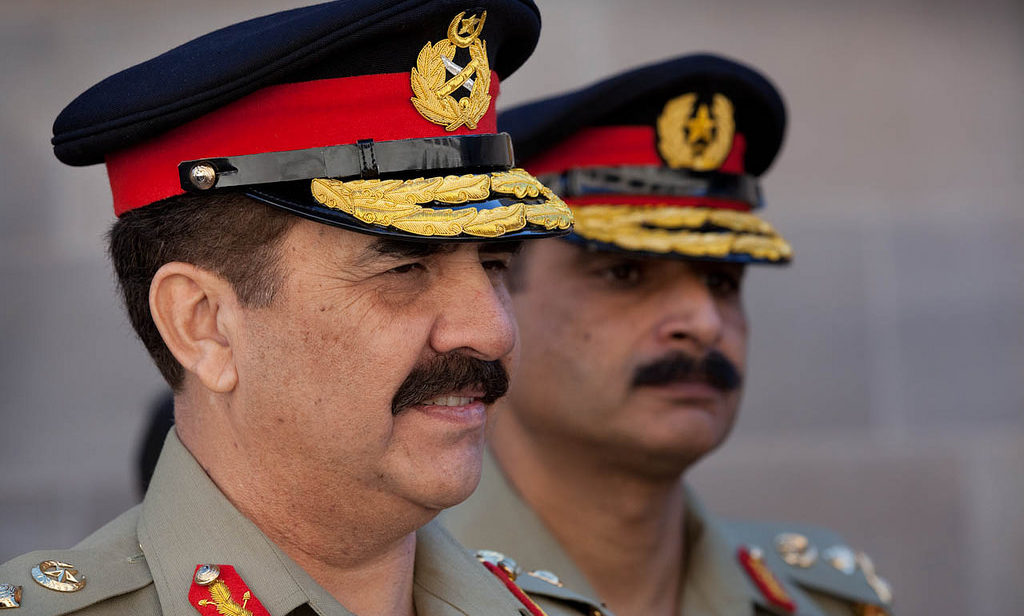
The ambitious Mohammad bin Salman, Saudi Arabia’s Crown Prince, has undertaken an effort to lead the Muslim world in the fight against the spread of extremism and terrorism. The creation of the Saudi-initiated and -led Islamic Military Counter Terrorism Coalition (IMCTC) in December 2015 was a landmark feat, but it was not until November 2017 that 41 Muslim states convened in Riyadh to discuss how to jointly combat terrorism. However, Iran, Syria, and Iraq—three Shiite-majority countries—were not invited to participate in the coalition, which has lead Tehran to perceive the IMCTC as merely a sectarian alliance against Iran and its allies. With a Pakistani as the commander-in-chief of the IMCTC and considering that Pakistan shares a border with Iran but has often depended on Saudi Arabia for economic and diplomatic support, the quagmire for Islamabad is serious. With the geopolitical calculus in mind, it is vital that Pakistan manage its future involvement in the IMCTC to balance its relations with Iran and Saudi Arabia. It would even benefit Islamabad to push Saudi Arabia for Iran’s inclusion into the IMCTC, as this would lend credibility to the coalition and assuage Iranian threat perceptions.
Iran’s Threat Perception
The strategic rivalry between Iran and Saudi Arabia has been intensifying over the past two decades as the two major powers in the Middle East have been sparring along sectarian lines in proxy wars in Iraq, Syria, and Yemen. In this context, it is unsurprising that Iran appears to be threatened by the Saudi-led coalition consisting of 41 Muslim states, especially since the so-called “Muslim NATO” excludes Tehran and other Shiite-majority Middle Eastern countries. Some analysts have suggested that Saudi Arabia may have even formed the coalition in order to depict Iran as a state sponsor of terrorism that has no place in multilateral institutions such as the IMCTC. Thus, whether the IMCTC will be an effective counterterrorism tool or an anti-Shiite political bloc to be harnessed against Iran is a question that remains unanswered.
Iran, for its part, has been subdued in its reaction to the coalition. In April 2017, in response to the appointment of General Raheel Sharif, Pakistan’s former Chief of Army Staff, as commander-in-chief of the IMCTC, Iran’s Ambassador to Pakistan expressed reservations on Sharif’s new position in the coalition, saying policymakers in Tehran were concerned that it “may impact the unity of Islamic countries.” In his comments, the ambassador indicated that Iran wanted all Muslim countries to work to resolve their issues rather than form a “controversial military alliance.” Indeed, Iran’s state-run news agency has not shied away from referring to the IMCTC as a “Saudi-led military alliance” in its reporting on the coalition.
Pakistan’s Dilemma: Balancing Iranian and Saudi Interests
Islamabad remains concerned that Iran may perceive Pakistan’s participation in the IMCTC as a threat to its security and has worked to pacify Tehran. In November 2017, when the inaugural summit of the IMCTC was held, General Sharif restated that the IMCTC is “not against any country or any sect.” A week before the summit, Pakistan’s Foreign Secretary Tehmina Janjua visited Tehran to mitigate any misperceptions and has repeatedly stated that Pakistan’s involvement in IMCTC is not along sectarian lines nor would it let its army be utilized in proxy wars in the Middle East.
However, last month, the Pakistan Army notified the Senate that it planned to send one thousand army personnel to Saudi Arabia under an existing bilateral security cooperation agreement. This abrupt declaration came as a shock to many parliamentarians, especially in the backdrop of the Parliament’s 2015 Yemen Resolution, which declared that Pakistan would not send its ground troops in the ongoing war in Yemen. The Inter-Services Public Relations (ISPR) explained in a press release that the troops were only going for a training mission and “will not be deployed outside the Kingdom.” Almost two weeks later, Iranian Air Force Chief Shahsafi came to Pakistan on February 27 and met Pakistan Army Chief Bajwa and Air Force Chief Aman. There was little information available about the meeting except that they discussed “matters of professional interest.” The proximity of the high-level Iranian visit to the announcement of troops being sent to Saudi Arabia suggests, however, that Pakistan may be attempting to balance relations with Saudi Arabia and Iran.
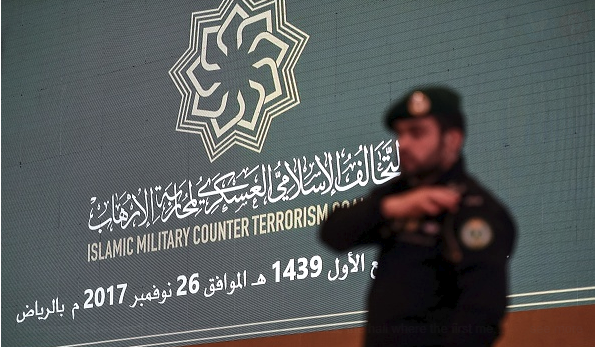
Pakistan’s Security Dilemma: Iran’s Ties with Regional Rivals
Pakistan desires peace and stability in South and Central Asia, but the recent downturn in ties with the United States and increasing cooperation between Afghanistan, India, and Iran over the Chabahar port has made it imperative that Pakistan augment its relationships with allies like Saudi Arabia. Indo-Iranian alignment has been exemplified in the Chabahar collaboration, but the agreements reached during Iranian President Rouhani’s three-day trip to India last month also point towards deepening India-Iran ties. India-U.S.-Afghanistan trilateral cooperation on stability in Afghanistan also exacerbates Pakistan’s security dilemma to its east.
Ultimately, Pakistan desires normalization of ties with Iran. However, it is possible that Pakistan’s greater involvement in the IMCTC could upset the current balance of relations, pushing Iran further towards Pakistan’s regional rivals India and Afghanistan. Thus, Islamabad must be careful to manage Iran’s threat perceptions vis-à-vis the IMCTC and its bilateral ties with Saudi Arabia.
Need for Inclusion, Not Exclusion
Pakistan need not take sides in this confrontation between Iran and Saudi Arabia and should continue to reiterate that the IMCTC is a welcome initiative aimed at curbing terrorism. However, Islamabad should recognize that dividing the group along sectarian lines is dangerous as it both negates the pan-Islamism slogan heralded by the coalition and threatens to disrupt the regional geopolitical balance. In essence, by excluding three Shiite-majority states from the coalition—including its primary strategic rival—Saudi Arabia is undermining the credibility of the very institution it is trying to uphold.
To avoid exacerbating Pakistan’s own security concerns as well as Iranian threat perceptions, Pakistan should proactively use its diplomatic clout to push Saudi Arabia to include Iran in the IMCTC. Furthermore, Pakistan’s success in the counterterrorism domain—according to a report by its National Counter Terrorism Authority, as of January 2018, the country has reduced terrorism by 58 percent from 2010—could serve as a shining example for all IMCTC members. The IMCTC is no doubt the brainchild of the Crown Prince Mohammad, but multilateral regimes always take on a form of their own. For this reason, Pakistan should not shy away from becoming a proactive actor in shaping the future of the coalition.
***
Image 1: Australian War Memorial via Flickr
Image 2: Fayez Nureldine via Getty
